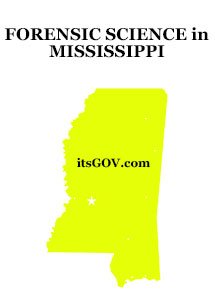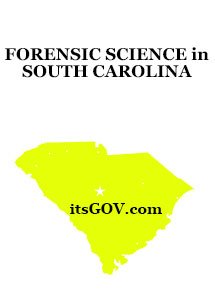Forensic Science
Forensic science is the scientific method of gathering and examining information about the past which is then used in a court of law and it requires very intense training and formal education.If you made it this far, though, congratulations! You’re taking the first steps in joining a very rewarding profession and itsGOV is here to guide you through what you need to know and what you need to do to join a forensic science program in Montana.
Depending on the type of forensic science practiced, different degrees and educational backgrounds may help a candidate get a job and excel in this field. Regarding formal education, requirements vary across jobs, but you should definitely have a solid background in mathematics, biology and chemistry.
The National Institute of Justice, a division of the U.S. Department of Justice, offers guidelines for model undergraduate and graduate forensic science degree programs. According to the American Academy of Forensic Science, strong programs should offer a curriculum that concentrates on scientific writing, laboratory skills, public speaking, and computer software application training.
Forensic Science Requirements in Montana
CSI and forensic science jobs in Missoula involve working with some of the state’s most unnerving crimes. One such case occurred 22 years ago when Missoula CSI detectives were called to the scene of a double homicide involving two married vacationers. After stopping at a campground near Lake Inez the couple was gunned down and a few items were stolen from their truck. At the time detectives could not develop any leads and carefully stored recovered evidence for later analysis.
Now forensic scientists at the Missoula State Crime Lab hope to crack this case wide open, using new advancements in technology and new methods of analysis to obtain DNA from the killer that was most likely scattered throughout the crime scene. The crime laboratory is capable of conducting any of the following:
- Lifting latent prints and impressions
- Examining trace evidence such as fibers, paint, and glass
- Analysis of drugs and other chemical residues
- Firearms, toolmarks and ballistics evaluations
Forensic Science training in Montana
The vision of the Forensic Science Division (FSD) laboratory is to ensure an adequately funded and robust forensic science laboratory environment, staffed with engaged, certified forensic scientists working with high quality instrumentation and using validated procedures to provide accurate, objective and timely analyses in accordance with international accreditation standards in service of the criminal justice community and the citizens of Montana.
The mission of the Montana Forensic Science Division is to use operationally efficient and financially responsible practices as the laboratory provides accurate, objective, and timely forensic analyses to the criminal justice community in order to maximize value to the citizens of Montana. On January 9, 2011, the Montana State Crime lab was awarded accreditation by ASCLD/LAB (American Society of Crime Laboratory Directors/Laboratory Accreditation Board) under the International Testing requirements ISO 17025:2005 and ASCLD/LAB International Supplemental Requirements. The Montana lab joins other national and international laboratories who have achieved this accreditation status. Laboratory accreditation is a continuing process that involves a number of audits that review and evaluate management practices, personnel qualifications, technical procedures, quality assurance program and facilities.The laboratory has been accredited since 2005 by ASCLD/LAB, previously under their Legacy Program requirements. Forensic laboratory accreditation is voluntary, but is required to receive some federal funding.
Forensic Science Salary in Montana
Forty forensic science technicians worked in Montana in 2012 according to information provided by the Bureau of Labor Statistics. They made an average salary of $56,450 in 2012 with those in the top tenth percent of their field making an average of $74,770. In addition to work in the lab, some forensic scientists travel to crime scenes to document them and collect physical evidence for further lab analysis. This is the case for some of the forensic scientists with the State Crime Lab. They provide assistance to law enforcement agencies throughout the state.
While many CSIs work as civilians, others are sworn officers with many years of investigative experience who work a crime from the site of the initial crime all the way through the trial.
Because of the differences in the types of jobs and the backgrounds of CSIs, their salaries can be highly variable. The average salary of a crime scene investigator in Montana was $46,000 in the one year period leading up to October 2013.
Forensic Science Schools and Colleges in Montana
Bachelor’s Degree
| University | University of Montana, Forensic Chemistry, B.S. |
| Duration | 4 years |
| Type | Full time, Part time |
| Tuition and fees | $6,464 in-state, $18,606 out-of-state per year |
| Program link |
| University | University of Great Falls, Forensic Science, B.S. |
| Duration | 4 years |
| Type | Full time, Part time |
| Tuition and fees | $10,456 per year |
| Program link |
| University | University of Great Falls, Forensic Biology B.S. |
| Duration | 24 months |
| Type | Full time, Part time |
| Tuition and fees | $20,960 per year |
| Program link |
| University | University of Great Falls, Forensic Chemistry B.S. |
| Duration | 24 months |
| Type | Full time, Part time |
| Tuition and fees | $20,960 per year |
| Program link |
Master’s Degree
| University | Department of Anthropology College of Arts and Sciences The University of Montana |
| Duration | 24 months |
| Type | Full time, Part time |
| Tuition and fees | $6,464 in-state, $18,606 out-of-state per year |
| Program link |
Department of Anthropology College of Arts and Sciences The University of Montana Program Information



